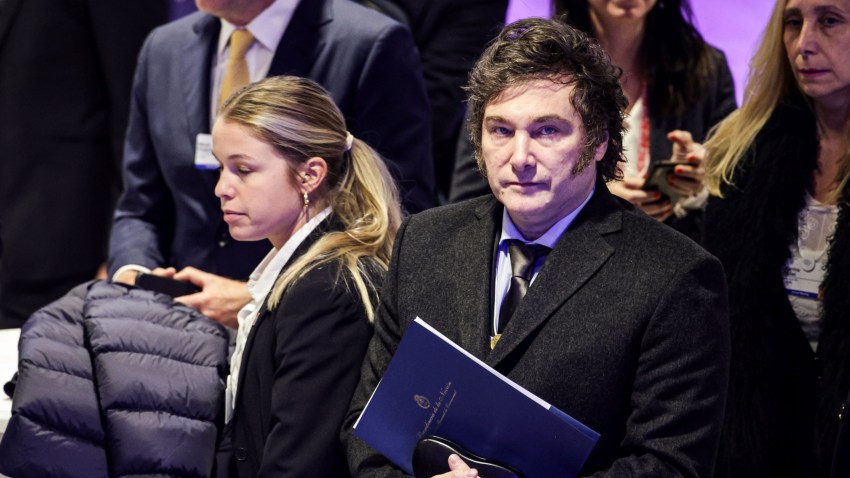Nobody can accuse Argentine President Javier Milei of being too cautious. Since taking office Dec. 10, Milei has launched a flurry of initiatives to implement his pro-market agenda. Some of his most outlandish campaign promises, such as dollarizing the economy and shutting down the Central Bank, are off the table, at least for now. But Milei’s pragmatic turn has its limits. His decision to push through a massive package of reforms all at once, his attacks against lawmakers whose votes he needs and his insensitivity toward the social costs of his policies risk alienating key supporters and dooming his administration.
Milei and the small cadre of advisers he trusts see his electoral victory in November—when he trounced the Peronist candidate, then-Economy Minister Sergio Massa, 56 percent to 44 percent in the second-round runoff—as a blank check to transform Argentina’s economic structure according to his libertarian philosophy. Days after Milei’s inauguration, Economy Minister Luis Caputo announced a drastic cut to public spending to quickly balance the fiscal deficit, which stands at 5 percent of GDP. He also devalued the peso by 50 percent to narrow the gap between the official and the black-market exchange rates and alleviate pressure on the Central Bank’s depleted reserves.
In the long term, Milei argues that cutting subsidies and removing price controls will eliminate distortions, normalize the economy and allow him to stop printing money to finance the Treasury. In the short run, however, his policies are accelerating already skyrocketing inflation and aggravating the country’s recession. Prices rose by 25 percent in December and by a whopping 211 percent in 2023. The International Monetary Fund expects a contraction of 2.5 percent of GDP this year, similar to the drop in 2023.

